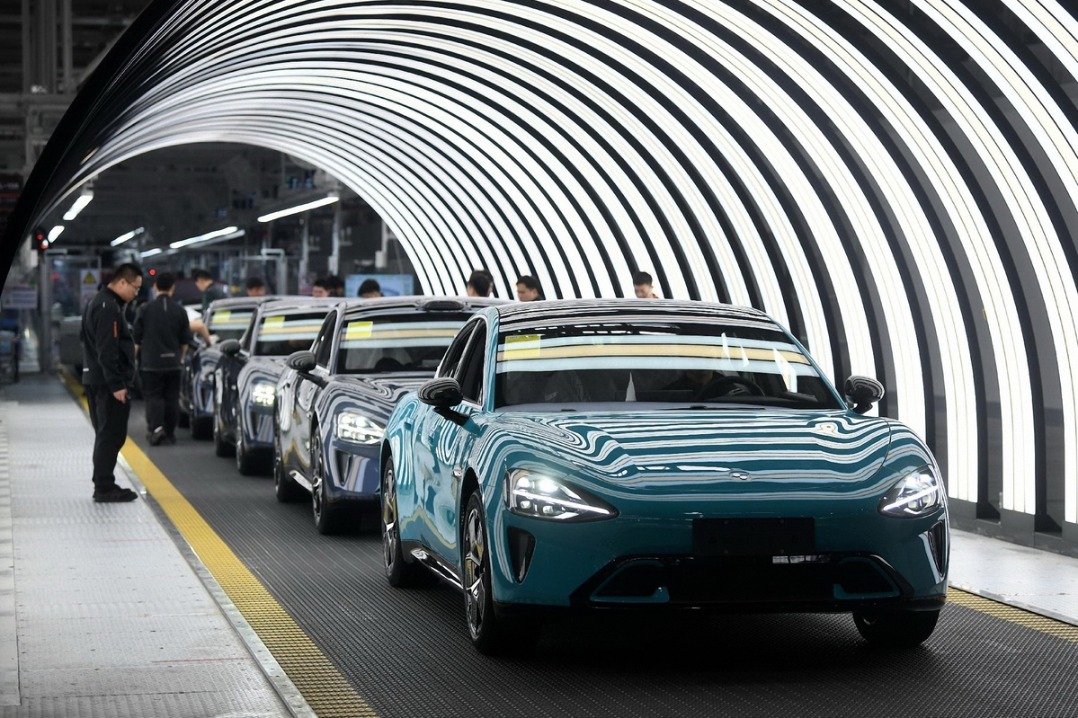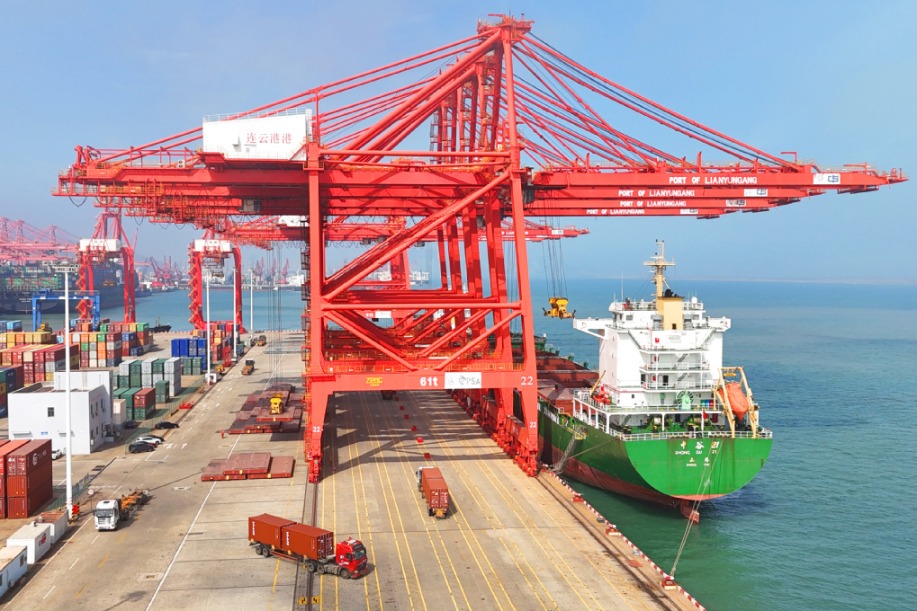Charity for common prosperity
By Jia Kang | China Daily | Updated: 2021-08-28 09:30

Common prosperity is an essential requirement of socialism and a key feature of modernization, but it cannot be realized by robbing the rich to pay the poor, said Han Wenxiu, deputy director of the Office of the Central Committee for Financial and Economic Affairs, on Thursday.
To understand what is meant by common prosperity, it is important to understand the meaning of wealth redistribution. The 10th meeting of the Central Committee for Financial and Economic Affairs on Aug 17, while underscoring the importance of common prosperity, said there is a need to build a foundational system with arrangements for coordinating and supporting primary distribution, (secondary) redistribution, and tertiary (re) distribution (of wealth).
The primary distribution determined by the market is indicative of the relationship between enterprises and employees. So to make primary distribution fairer, the authorities should promote innovation in business and take measures to enlarge the "cake", that is, expand the economy.
Different from primary distribution, redistribution is mainly determined by the government, in an effort to "cut the cake in a fair way", so that the government, businesses and the people get their fair share of the "cake".
For the government, fiscal distribution is an important way of ensuring fair national income distribution. And since the relationship among the central authorities, local governments, businesses and the people is related to fiscal policy, the government should use the policy to lay a solid foundation for healthy and sustainable redistribution of national wealth.
As for tertiary (re) distribution, it promotes fairer distribution of wealth, which narrows the income gap by prompting high-income groups and enterprises to give back to society part of what they have earned from society, including through voluntary, charitable donations. That's why the government formulates policies to guide and assist the tertiary (re) distribution of wealth.
The concept of fairness applies to the regulation and process of resource allocation, which can also benefit the people. Yet wealth distribution and redistribution needs to be balanced with public benefits. For example, if people are given an equal share of the wealth regardless of their contributions to generating wealth, they may lose the motivation to put in enough effort to boost economic growth. On the other hand, the widening income gap and the uneven distribution of social resources can cause social disharmony, and lead to the politicization of economic issues.
Tertiary (re) distribution is closely related to charity. Apart from helping boost economic and social development, tertiary (re) distribution also plays an important role in narrowing the income gap and promoting common prosperity.
The central leadership believes in allowing some people to get rich first, encouraging those who get rich to help those who are not yet rich, and focusing on encouraging hard-working, legal business operations. Thanks to the efforts of the leadership and the people, China has become a moderately prosperous society in all aspects with rapidly expanding middle- and high-income groups, which are increasingly contributing to charity.
China can bolster the development of the charity system by drawing on the experience of developed countries, where many affluent people establish charity and/or development trusts and foundations. In fact, implementing favorable policies can promote the development of charity foundations and nongovernmental organizations in China, and encourage more affluent people to donate to charity.
In recent years, charity practices such as donating money for poor students, disaster relief work and volunteer organizations have been increasing in China. But despite its development, the social charity sector faces challenges, not least due to charity scams.
So the government should encourage charity organizations to improve their social image through more charitable activities. Also, the government should consider exempting some of the, if not the total, amount voluntary donors give to charity from income tax.
Besides, the authorities also need to optimize the related policies and laws, and accelerate tax reform to better develop the charity sector.
The author is chief economist of the China Academy of New Supply-Side Economics. The views don't necessarily reflect those of China Daily.
























